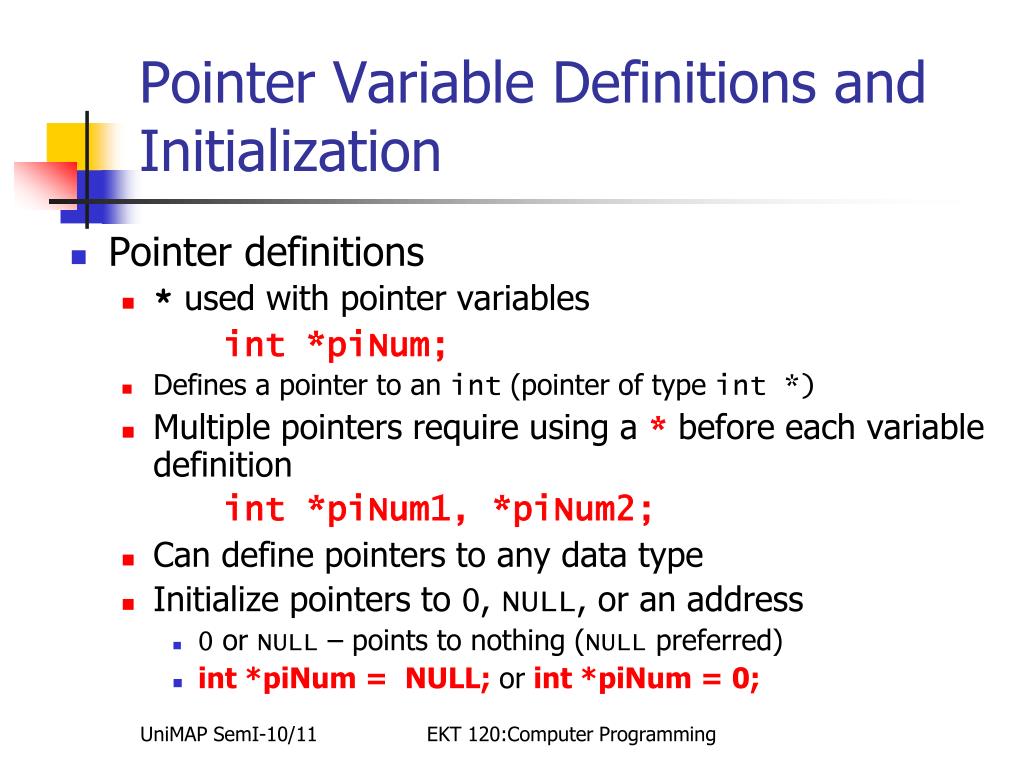
The ‘value at address’ operator is also called ‘indirection’ operator. It gives the value stored at a particular address. The pointer specifies an address not used by the executing program. address of operator ( & ) Value at address operator ( ) The is a unary operator. Example 22. The concept of indirection is also known as dereferencing, meaning that we are not interested in the pointer but want the item to which the address is referring or referencing. The pointer specifies an address that is inappropriately aligned for the type of the object pointed to. The indirection operator is the asterisk or the character that we also use for multiplication.

The pointer specifies the address of a local item that is not visible at the time of the reference. The following list includes some of the most common conditions that invalidate a pointer value. If the pointer value is invalid, the result is undefined. << "address of n via indirection: " << *ppn << endl << "doubly indirect value: " << **ppn << endl For example: // expre_Indirection_Operator.cpp The indirection operator may be used cumulatively to dereference pointers to pointers. If it points to a storage location, the result is an l-value designating the storage location. It seems that the compiler is interpreting this as an indirect operation of a pointer. If the operand points to a function, the result is a function designator. We can not apply own operators of a pointer to a variable of integer type in this case. The use of the * operator in this context is different from its meaning as a binary operator, which is multiplication. The result of the indirection expression is the type from which the pointer type is derived.

The operand of the indirection operator must be a pointer to a type. The -> (member access) and (element access) operators. Unary (pointer indirection) operator: to obtain the variable pointed by a pointer. Any expression A * B, whatever the types of A and B, can only be treated as a multiplication in C.The unary indirection operator ( *) dereferences a pointer that is, it converts a pointer value to an l-value. You can use the following operators to work with pointers: Unary & (address-of) operator: to get the address of a variable. "A * *B" (which of course can be written "A**B", whitespaces don't matter here, it's just less readable for humans if you omit them), if B doesn't have pointer type, is an error and will not compile. Thus this is non-ambiguously "A times dereferenced B", and by the rule above, B must have pointer type.

The second '*' can only be a unary operator: on its left, there is NO operand, just another operator, and it follows that the first "*" can only be a binary operator. Take this expression: 'A * B', here the '*' operator can't be the unary *. The additional rule is just that as a unary operator, it's only defined as a dereference operator, and thus its operand can only have pointer type. Otherwise, it's treated as a binary operator. By definition, a unary operator CANNOT have an operand on both of its sides. Before the fact it's followed or not by a pointer type, here they talk about the UNARY * operator. It doesn't give you a pointer, so trying to dereference that value ( arr n) won't work unless you're working with an array of pointers. Within the function, remember that arr n gives you the n th value in the array. That's when ALL terms have their importance in a technical document, and especially in standards. Passing an array is the same as passing a pointer to its first element.


 0 kommentar(er)
0 kommentar(er)
